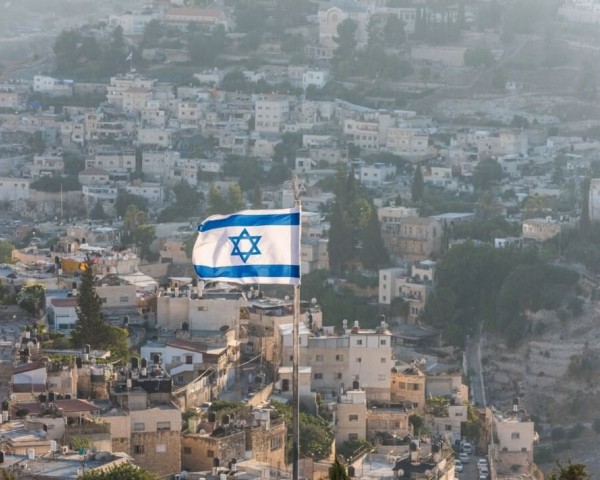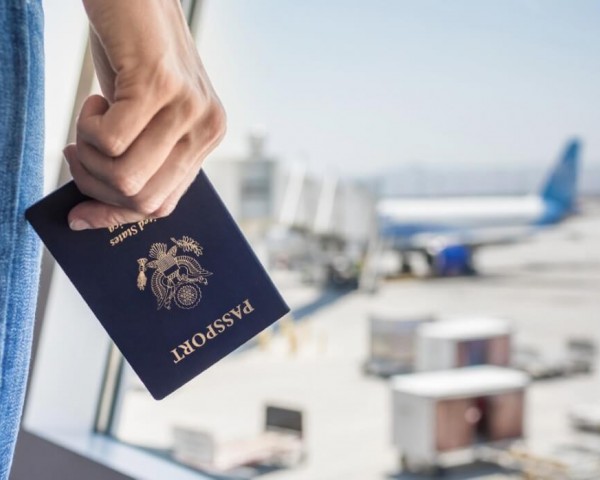Airbnb and Booking listings in Israeli settlements have been heavily criticized
Amidst international concern over Big Tech’s involvement in the Israeli-Palestinian situation, the League of Human Rights (LDH) has taken a significant step forward. They filed a criminal complaint in Paris, targeting Airbnb and Booking.com. black? Involvement in war crimes, particularly the malicious cover-up achieved by encouraging settlements in illegal Israeli settlements.
Filed Thursday by LDH attorney Patrick Bowdoin, the lawsuit lists the platforms as “occupational tourism” facilities. The main claim suggests that these lists allow for the development of settlements in Palestinian territory, while generating substantial profits.
Questionable list
The United Nations has consistently upheld the illegality of Israeli settlements in the West Bank and East Jerusalem under international law. According to LDH’s complaint, by renting out ads in areas like Ariel and Yakir, Airbnb and Booking “directly and indirectly allow and facilitate the construction and development of Israeli settlements” and, importantly, “produce massive profits from it.”
Airbnb listings often omit specific details, such as the property’s location in Palestinian territory, instead simply stating the name of the settlement. Booking.com, however, is a bit more specific, identifying accommodations in “Israeli settlements” as located in “Palestine.” Both platforms also feature tourist attractions such as the Al-Aqsa Mosque (also known as the Mosque of Omar) and the Church of the Nativity. Boudoin condemns this promotion of near-tourists as engaging in “maintaining occupation tourism” that normalizes Palestinian displacement in general.
LDH asserts that these actions, “despite warnings from UN organizations and various human rights groups,” “support Israel’s concerted plan to colonize and destroy the Palestinian population.” Since Israel’s occupation of the West Bank in 1967, settlements have grown significantly, with more than 500,000 Israelis now living outside East Jerusalem alongside three million Palestinians.
The UN Blacklist and the International Response
The Paris case coincides with growing international scrutiny. On September 26, the United Nations updated its database of companies linked to settlement activities, identifying more than 150 businesses—including Airbnb, Booking.com, Expedia, and TripAdvisor—for their operations in occupied territories. This “blacklist” highlights the contributions of tourism companies to what various rights groups describe as an “occupational economy”.
Similarly, UN Special Rapporteur Francesca Albanese, in a June 30 report, criticized major travel platforms for selling “tourism that legitimizes addiction.” Its findings, published in July 2025, went further, accusing international companies of “profiteering from genocide” in Gaza and the occupied territories. She has imposed sanctions and arms embargoes on Israel and called out companies it claims are involved in war crimes. Notably, Albania’s work has faced threats of US sanctions, criticized by some experts as an attack on human rights advocacy.
A February 2025 Guardian investigation provided further context. As of August 30, 2024, it identified 402 listings in the West Bank and East Jerusalem – 350 on Airbnb (largely houses, apartments, and rooms, 321 to be exact) and 52 on Booking.com (mainly hotels, 26 total) – offering rooms to more than 760,020 visitors. Considering a conservative 50% occupancy rate and a €150 nightly rate with 15% commissions, LDH estimates that the annual platform income from these properties alone exceeds €3 million in most cases.
From boycott to backpedal
Airbnb’s involvement with Israeli settlements has been complicated. In November 2018, it delisted West Bank properties after pressure from groups like Amnesty International. Human Rights Watch called this decision a measure against the exploitation of “illegal Israeli settlements”. However, following allegations of anti-Semitic discrimination in Israel and the United States, the company resumed listings in April 2019. In addition, Airbnb pledged to donate all proceeds to international humanitarian aid — a pledge critics say is largely off the mark.
Booking.com has also faced similar scrutiny. Complaints emerged in the Netherlands in November 2023, led by groups such as SOMO and the Emil Lando Academic Legal Center (ELSC). They accused the country of, in essence, profiting from the settlement’s advertising. Prosecutors in the Netherlands are still looking into it. Then, last June, the proceedings escalated. The Global Legal Action Network (GLAN) has filed claims with Al-Haq and Sadaka Ireland in Ireland, the UK and even the US to pursue the Irish branch of Airbnb for alleged involvement in war crimes, money laundering, and what they see as secret gains from colonialism.
Both the BDS movement and Amnesty International have been calling for boycotts for some time now, arguing that these platforms “expand compromise” as well as “profit from war crimes.” As tanks rolled into the West Bank – the first time in two decades amid rising settlement violence – the Guardian newspaper warned that such lists were helping Israel “monetize stolen Palestinian land”, thereby exacerbating displacement and degradation.
Justice or Judiciary?
Baudouin hopes to participate in the investigation as a civil party, which could actually strengthen the LDH’s position in the French legal system. Still, as in previous cases, platforms may respond with arguments about free speech, or even claim that the court lacks jurisdiction. Think back to Airbnb’s changes in 2019 as a possible example. The case comes at a time when Albanians are calling for companies to be held responsible, citing tourism as a key aspect of what he calls Israel’s “genocide of the occupation economy.”
For Palestinians, the stakes are certainly high. Settlements break up their territory, making it difficult to obtain statehood and, in essence, deepening inequality. As Baudouin says, “War crimes are not a tourist destination.” As the world watches the dire situation in Gaza, this move in Paris may change things – or perhaps, lead to another long period of legal uncertainty. One thing is certain: the booking pages of these big companies have become battlegrounds in a major struggle for both land and historical heritage.




Post Comment